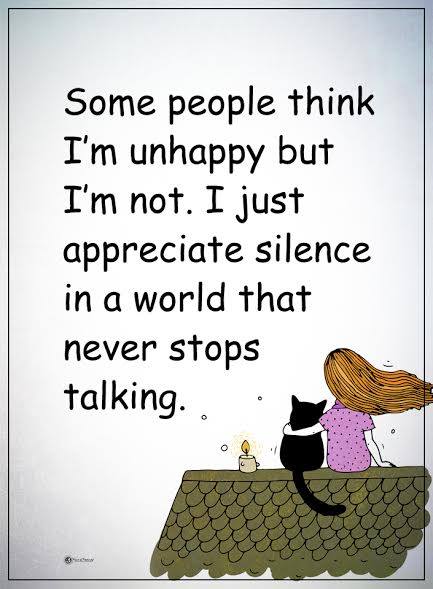Where do you go when your thoughts are consuming, or do you need to share personal feelings? How can you revisit and reflect on some of the beautiful events in your life? Learning how to write in a journal may be your answer.
Early humans developed language before they did writing. Their culture and history were preserved by the elders sharing stories and instructing the next generation. They also described daily rituals and events with simple paintings on cave walls.
As human civilization evolved, they represented their language with symbols that became the first writings. Soon, early cultures around the known world began to keep records of their history for practical purposes. Prehistory blended seamlessly into recorded history with the beginning of journal writings.
You’ve probably studied some of the earliest journal writing in school, including the Babylonians, Chinese, and Egyptians. These priceless windows into the distant past were how these cultures measured time and remembered their people’s history. While some chronicled great battles and other monumental events, others were lists and basic household reporting.
If you’ve never kept a personal journal, there’s no better time than the present to start. It’s your private writings, and you choose how it’s done. The only rules for keeping a journal are the ones that you decide.
What’s Your Purpose of Writing?
If you want to learn how to write a journal and discover the benefits, you need a purpose. As with any new habit, you’re more likely to continue if it has an objective and you recognize how it helps you. According to an article published by Harvard Business Review, everyone’s timing is different when assimilating new habits, so it depends on you.
1. Chronicles
Whether you call your personal notes a journal, diary, or log, it doesn’t matter as long as you decide its purpose. Maybe you want your journal to be a summary of your day. You can divide it into blocks like a calendar. Some of the earliest known journals were simple chronicles.
2. Reactions and Annotations
If you’re like most people, the events of the day leave emotional impressions on your mind. Some journalists like to jot down their ruminations and opinions with each event. Noted journal entries are handy when you want to reflect on your feelings in the past and compare them to the present.
3. Creative Journals
Another way to learn how to write a journal is to enhance your creativity. You needn’t be another Picasso to enjoy sketching or painting. You can easily concentrate your journal efforts into collecting your work and adding notes as you see fit. Many iconic artists like Leonardo da Vinci kept meticulous journals and records about their work.
If you are a gifted writer, then composing a journal may be second nature. Your writing journal can become a treasure trove of sudden inspiration and rough drafts. Regardless of if you create poetry or standard text, your journal will be an indispensable writing tool.
4. Instruction Journals
Good cooks and chefs often keep detailed journals on their favorite recipes, ingredients, and techniques. Learning how to keep a journal can help you remember essential skills at home or work. Instruction journals are helpful reference guides to keep handy.
5. Spiritual Journal
Are you trying to develop a deeper connection between you and the Divine? This desire may be one of the many reasons you want to learn how to write a journal. Meditation, visualization, and writing in your diary are excellent tools for spiritual enhancement.
As you listen to your inner voice and connect with the Universe and your spiritual guides, you may want to remember their words. Take note of how you feel and any other inspiring sensations you have.
Your journal can be an integral part of your daily devotions, although you needn’t be religious to keep one. Spiritual journals play a vital role in many sacred traditions. For example, in Wiccan tradition, the grimoire serves as a journal for practice and inspiration.
Ready, Set, Write
Now that you’ve decided your journal’s purpose, you need to determine the style you want. It can be as straightforward or as complex as you like. You can buy an inexpensive notebook, or you can find a beautiful blank journal in the book section of your favorite department store.
When you learn how to write a journal, your creative sparks will fly. If you enjoy crafting, you can design a unique diary. Decorate it with anything that speaks to you and use colorful pens and markers for writing, drawing, or doodling.
Many people who journal like to cut out inspirational pictures and quotes from magazines to post. When added to your musings and other writings, it becomes a portable dream board. You’re only limited by your imagination when you learn how to write a journal.
How Does Writing in a Journal Help You?
Journaling is not only a fun way to chronicle your life, but it also has several benefits. You’ll wonder why you didn’t start doing it years ago. Here are some of the possible benefits that journaling can offer.
1. Calms the Chatter
Your brain may take a little hiatus when you sleep, but it’s still running the systems that keep you alive. Plus, your mind may play a constant loop of negative self-talk. These worries may cause many sleepless nights.
Try writing down your thoughts and worries in your journal before going to bed. As you close the diary, leave the problems inside, and clear your mind. You’ll have more clarity for problem-solving in the morning.
2. Reduces Stress
How many people have told you lately how stressed out they are? Maybe your stress levels have reached the max. An article published in the Cambridge University Press states that writing can beat stress. Just 15 to 20 minutes of writing in your journal at least four days a week can decrease depression and boost positive moods.
3. Improves Your Memory
Your short-term memory doesn’t always keep up with your long-term memory. The chances are that you don’t remember what you had for breakfast this morning. As you get older, you may have problems recollecting some of your fondest memories.
When you learn how to write a journal, it becomes the history book of your life. Use your journal to record all your thoughts, dreams, and events of the day. When your memory needs to be refreshed, go back, and review old entries.
4. Defines Your Goals
Another benefit of writing in your journal is that it can help you define your goals. How can you achieve something if you aren’t sure what you want to do? Use your journal for recording short-term and long-term goals.
When you can read and understand your goals, it’s easier to plan. Plus, you can add or subtract from them as needed. Your journal can serve as a visual aid for your future.
5. Inspires Your Creativity
How often have you conceived a brilliant idea and forgot it the next day? Learning to write a journal will help you keep track of these ideas. A burst of creativity can hit you at any time, so have your journal handy to make notes.
The next time you need a creative idea for a project, you can flip through past entries for inspiration. Feel free to draw pictures or add anything that will fuel your imagination. It will be right at your fingertips.
6. Improves Your Writing Skills
Regardless of your profession, excellent writing skills are essential. You’ll not go far in the business world by sending communications with poor grammar, sentence structure, and misspellings. Writing every day in your journal is an ideal practice for improving your writing skills.
7. Validates Your Feelings
Another benefit of learning how to write a journal is to get in touch with your feelings. After a stressful day, it’s comforting to allow your thoughts to flow from your mind to the paper. It’s a better way to understand how you feel about situations in your life.
7. Boosts Your Immune System
Who would have guessed that writing in your journal could boost your immunity? According to a study cited by the American Psychological Association, participants who recorded daily events in their journal measured higher in immunity than those who didn’t.
Of course, more studies need to be conducted for the findings to be more conclusive. However, your journal activities may mean less stress and a more incredible feeling of well-being. It’s worth the effort.
Final Thoughts on How Writing a Journal Helps You
Your life is a beautiful gift that deserves gratitude and celebration every day. Consider the benefits of collecting your thoughts, feelings, and ideas in a journal. Not only can it help you, but you’re leaving a living testament of who you are for the next generation.

















 Community
Community

